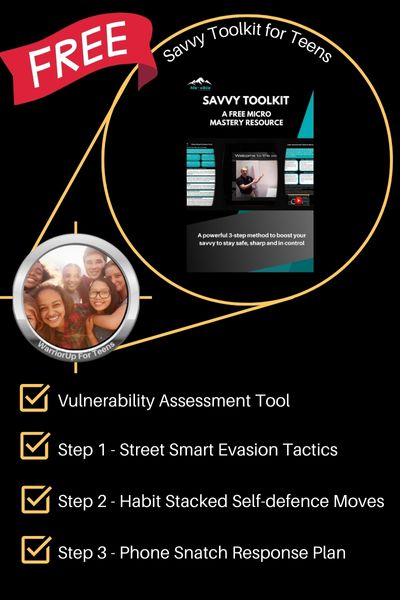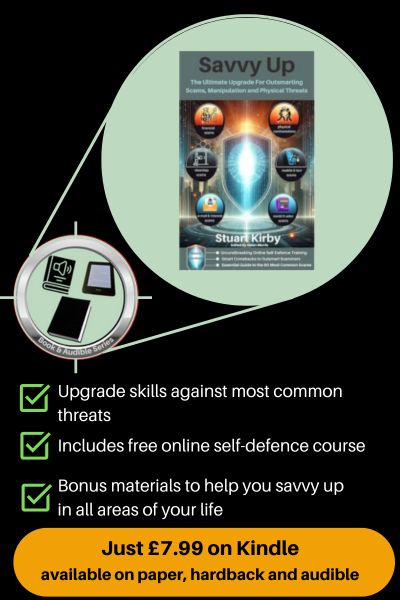Self defence and fitness goals need a routine
The internet is awash with inspiring quotes on the importance of habits for success. My particular favourites are:
- First, forget inspiration. Habit is more dependable. Habit will sustain you whether you’re inspired or not. -Octavia Butler
- Habits change into character. -Ovid
- Life is habit. Or rather, life is a succession of habits. -Samuel Beckett
- Motivation is what gets you started. Habit is what keeps you going. – Jim Rohn
You would be hard-pressed not to feel a tingle of agreement with all of these statements, yet for most of us, developing the right habits that deliver the life we want is still far too elusive. This is especially true in our quest for fitness.
One of my habit formations came from my mum. Seeing her make a cuppa first thing in the morning kickstarted something in me that I still do today. It’s an easy habit to maintain, it has a satisfying result and the effort required is minimal. The secret to successful habit formation -According to one of my favourite books ‘Tiny Habits,’ by B J Fogg.
The Fogg Behavioural Model
Essentially habits are formed in several ways. Your environment plays a significant part in that. Lucky for me, my mother wasn’t a drug addict, as growing up in that kind of environment along with genetic factors would increase my vulnerability to forming a drug habit by 40-60%, according to scientific research conducted by The National Institute of Drug Addiction (2006).
BJ Fogg puts a lot of emphasis on environmental design. In fact, if I wanted to change my habit of drinking tea in the morning to juicing, I could hide the kettle away and put the juicer in its place!
To increase the likelihood of this new juicing habit taking hold, Fogg would recommend starting with a single fruit, the easiest to cut and extract juice from, hence where the ‘Tiny’ comes from for his book title—making the first element of your habit tiny and therefore achievable. By tapping into the brain chemical dopamine, you can control functions like behaviour, emotion and cognition. Learn more about his work here.
A Simple Habit Building Strategy
Not wishing to turn you all into tea-drinking junkies, or even juice-drinking junkies (since regular juicing is now frowned upon), let’s use a fitness-relatable habit.
Imagine it’s the 1st of January and whilst recovering from a hangover (the alcohol or sugar kind), you make the claim that you will do 100 push-ups a day until your holiday in May, with the intended result to look buff in your speedos!
If daily press-ups are not already a habit, you may have overreached on this New Year’s resolution (who hasn’t done that!) With the Fogg Behavioural Model, you would start the first week of January doing just 3 push-ups per day. Yes, 3! What’s the bloody point I hear you thinking?
Those 3 push-ups can easily be achieved prior to reaching for your toothbrush that has been newly situated on the bottom shelf of the cabinet under the sink (environmental design,) a clever ‘prompt’ to get to the level (halfway to doing a push-up). You smash it! And those 3 little push-ups create an easy dopamine hit, so you rise to your feet smiling, ready to brush your teeth. You know you can easily increase that tomorrow, right? A photo of the resort you will visit in May is taped against the mirror (motivation.) It is an easy win and unknowingly, you are developing a habit of completion – aka, a habit that will stick!
Before you know it, you’ll hit your magic number and, most importantly, you will have succeeded in building a new healthy habit. Then, anything is possible.
This works well because you anchor the new habit you’re trying to develop with a well-established habit, like brushing your teeth.
Motivational ideas can vary, it could be a picture of your younger self with a sixpack, or just a simple reward system, like, I get to chill in the sauna after my HIIT class, or episode 7 of Breaking Bad awaits me once I finish this 20-minute Joe Wicks workout. Music of course plays a huge role in motivation, check out our blog on music and fitness.
Should we listen to Fogg?
Interestingly, Fogg began on the dark side of the exploitative side of human behaviour, publishing the book ‘Persuasive Technology: Using Computers to Change What We Think and Do.’ This led him to teach the infamous Persuasive Design course at Stanford University, which developed some of the most successful tech entrepreneurs, teaching them how to master the attention economy.
Realising how he played his part in influencing the people who created some of the most addictive technologies we have today, he wrote ‘Tiny Habits: The Small Changes That Change Everything’, hoping he could guide people to build sustainable habits to support a happier and healthier life.
Mu-shin Self-Defence is dedicated to building ‘instinctive’ and sustainable self-defence skills. In order to achieve that, techniques need to be practiced (including mental rehearsal) enough times to embed to muscle memory.
A habit of regular training is essential to this, and by using a blended training programme, with face-to-face sessions supported by short recap videos and visualisation meditations, we make fitness a habit and self-defence instinctive.



